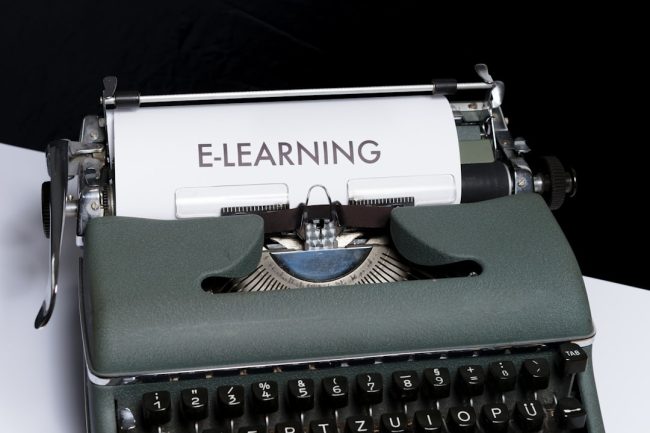A major change in the field of education and professional development has occurred in recent years, primarily due to the introduction of digital learning initiatives. Learning is now more accessible, flexible, and individualized thanks to these cutting-edge platforms, which have completely changed the way we acquire knowledge and skills. We are adopting these programs as vital parts of our educational and professional journeys, not just as supplemental tools, as we navigate an increasingly digital world. A vast array of formats are included in digital learning programs, such as mobile applications, interactive simulations, webinars, and online courses. By accommodating a range of learning preferences and styles, they enable us to interact with the material in ways that are personally meaningful to us.
This move toward digital learning represents a fundamental shift in our understanding of education and skill development, not just a passing fad. As we learn more about this subject, we’ll look at how important skill evaluations are to these programs & how they improve our educational experiences. In the fields of education and professional development, skill assessments are fundamental. By giving us a methodical approach to assess our skills and knowledge, they help us pinpoint areas that need work & monitor our development over time. Even more important are skill assessments in the context of digital learning programs, which enable us to assess our comprehension of the subject matter & make sure we are learning the skills we need to be successful in our chosen fields.
Moreover, skill evaluations promote responsibility. We are more inclined to take charge of our educational path when we participate in formal evaluations or self-assessment. This accountability pushes us to aim for constant improvement and set clear objectives.
Skill assessments become crucial instruments that direct us toward accomplishing our goals in a digital learning environment, where self-directed learning is frequently prioritized. Even though they are crucial, traditional skill tests frequently have a number of drawbacks that can make learning more difficult. The dependence on standardized testing techniques, which might not fairly represent our actual skills or knowledge, is one major problem. We feel unprepared for real-world applications because these tests frequently emphasize rote memorization over critical thinking and problem-solving abilities. Traditional evaluation methods can also be resource- and time-intensive.
We might discover that we are devoting an excessive amount of time to test preparation or to long assignments that don’t necessarily advance our comprehension of the material as a whole. This inefficiency can cause us to become frustrated and disengaged, which will eventually lower our desire to learn. It becomes evident from further research that digital learning programs provide answers to these problems by offering more dynamic and interesting ways to assess student learning. Digital learning platforms have become a potent substitute for conventional evaluation techniques, providing us with quick and easy ways to gauge our proficiency.
The ability of these programs to offer instant feedback is among their greatest benefits. Instead of requiring days or weeks to grade, digital platforms can evaluate our performance in real time and provide information about our strengths and weaknesses. Because of this immediacy, we can modify our learning tactics in real time, improving our educational experience as a whole. Also, to accommodate various learning styles, digital learning programs frequently include a range of assessment formats. These programs let us show off our knowledge in ways that are relevant to us personally, from project-based assessments to gamified challenges and interactive tests.
By ensuring that we are evaluated on a wider range of skills, this diversity not only keeps us interested but also gives a more complete picture of our abilities. Beyond convenience, there are additional benefits to using digital learning platforms for skill evaluations. Personalizing our educational experiences is a noteworthy advantage. Algorithms are used by many digital platforms to customize assessments and content according to each user’s performance and preferences. In addition to providing support in areas where we might struggle, this individualized approach guarantees that we are challenged appropriately. Digital learning programs also frequently enable collaborative assessments, which let us interact meaningfully with our peers.
In addition to improving our communication and teamwork abilities, group projects and peer reviews allow us to learn important lessons from others. Our educational experience is enhanced by this collaborative element, which also gets us ready for the realities of working in diverse teams in the workplace. We can examine a number of case studies from diverse industries to demonstrate the efficacy of digital learning programs for skill assessments. For instance, a top technology company put in place a digital training platform with role-specific skill assessments for its staff.
Their use of interactive simulations & real-time feedback systems allowed them to greatly enhance worker productivity and job satisfaction. The program was implemented, and within six months, the company reported a 30 percent increase in productivity. Another striking example comes from the healthcare industry, where a medical school implemented a digital learning platform to evaluate its students’ clinical proficiency.
By incorporating scenario-based evaluations and virtual patient simulations, they gave students practical experience in a secure setting. Students reported feeling more confident in their skills, and the institution observed a decrease in errors during clinical rotations. The results were impressive. It is crucial to follow best practices that optimize the efficacy of digital learning programs when considering their implementation for skill assessments. Above all, we must make sure that the tests reflect our learning goals.
By establishing a clear goal for these tests, we can develop focused assessments that precisely gauge our development. Using a range of assessment techniques is also essential. Through the use of projects, quizzes, peer reviews, and self-assessments, we can keep the learning process interesting while gaining a comprehensive understanding of our abilities. As we move through our learning process, it is also critical to regularly review and update assessment content to guarantee its applicability and efficacy. Finally, cultivating a culture of feedback is critical to success.
Promoting candid discussion of evaluation findings enables us to grow from both achievements and setbacks. We can improve our own development as learners by fostering an atmosphere where helpful criticism is respected. To sum up, digital learning initiatives have revolutionized how we approach skill evaluations in professional and educational settings.
These programs enable us to take charge of our educational paths and guarantee that we gain the skills required for success in a constantly changing labor market by providing individualized, effective, and interesting assessment techniques. We predict that a number of trends will further influence how digital learning programs for skill assessments are developed in the future. Incorporating artificial intelligence (AI) will probably be crucial to further personalizing tests and enabling learning experiences that are flexible enough to adjust to our changing needs. Also, the emergence of augmented reality (AR) and virtual reality (VR) technologies may offer more realistic assessment experiences that replicate real-world situations than in the past.
We are still hopeful that skill assessments will develop in tandem with these developments in digital learning programs as we continue to adopt them. We can improve our educational experiences & better position ourselves for the opportunities & challenges that lie ahead by carefully and strategically utilizing technology.
In the realm of digital learning, simplifying skill assessments is a crucial aspect that can significantly enhance the efficiency of educational programs. A related article that delves into the broader context of digital learning solutions is titled “Step-by-Step Guide to Implementing a Learning Management System.” This article provides valuable insights into the systematic approach required to integrate a Learning Management System (LMS) effectively, which can be instrumental in streamlining skill assessments. By implementing an LMS, organizations can not only simplify the assessment process but also ensure that learning is more accessible and organized. For more detailed guidance, you can read the full article here.













